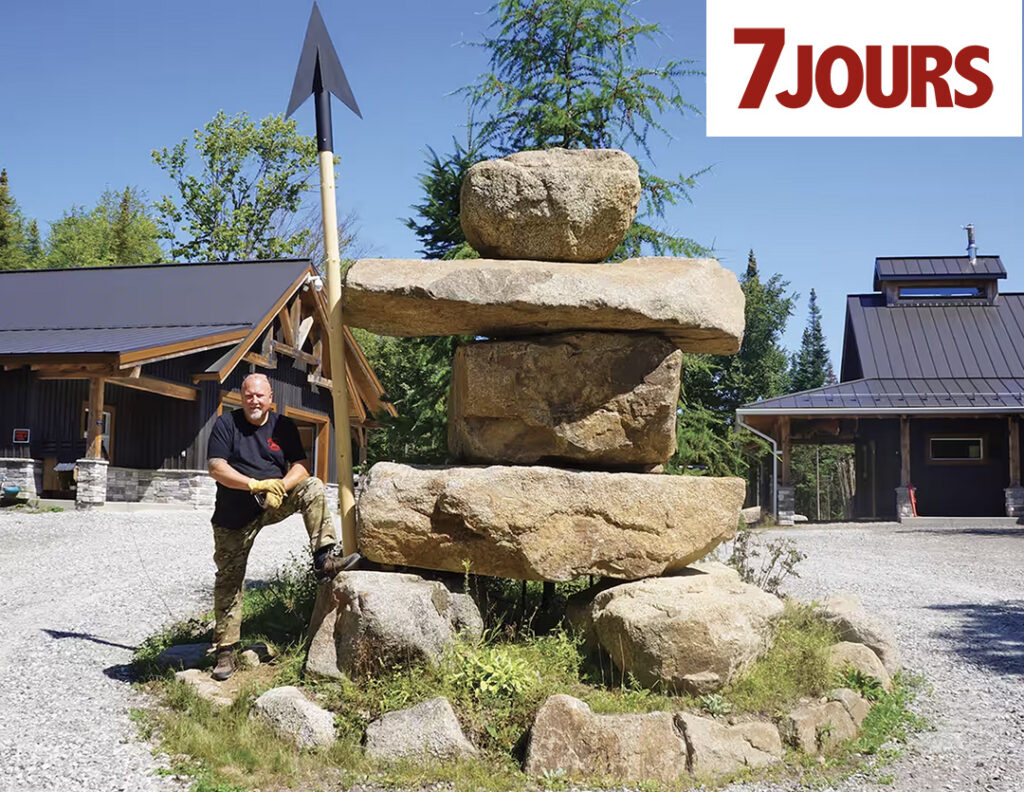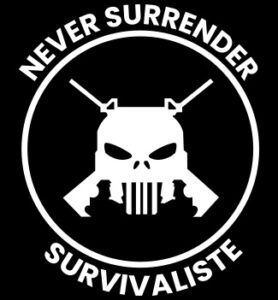
Wednesday, February 19 at 7:30 PM, MOI ET CIE (Start)
Marie-Hélène Goulet
How many days could you survive at home in the middle of winter if a disaster cut the power? Survivalists, on the other hand, can face widespread outages for several weeks without even reducing their comfort. In this new documentary series, Patrice Godin meets these people who are prepared for the worst!
At Benoît's place, one of the interviewed survivalists.
Patrice, what is a survivalist?
It's someone who prepares for a disaster of small, medium, or large scale. Here in Quebec, we could talk about power outages that last several days. Basically, these people stockpile provisions to survive and have backup heating. Beyond that, some will extrapolate a lot, preparing for huge disasters that would disrupt normality for up to 6 months, a year, or even 10 years!
Are there different types of survivalists?
When we talk about survivalists, many people think of the cliché of the heavily armed American with bazookas, ready to survive the apocalypse or face a horde of zombies. That exists, but it's not just that. There are also resourceful people who go back to basics. If war hits Montreal, for example, these people can leave with a backpack and their knife and survive in the forest. There are a multitude of different survivalists, and you will discover them in the series.
What surprised you the most?
I must admit I was surprised by a man who dug himself a bunker in Ontario. This old American arrived in Canada in the 1960s after the Cuban Missile Crisis. Since then, he believes in an imminent nuclear attack. To protect himself, he created an underground shelter using the carcasses of old buses. It's spectacular and disturbing at the same time!
Does watching "Survivalistes" make you paranoid?
It doesn't make you paranoid, but there are things that will make viewers smile. To which the survivalists would respond: "You'll smile until it hits the fan!" Since the beginning of time, every civilization has predicted the end of the world, but it is true that there are currently worrying things happening on our planet in terms of the environment, geopolitics, and terrorism. The show makes you think about what would happen to us in the event of a disaster.
Has this filming changed your lifestyle habits?
Not yet, but there are elements I would like to improve on in order to be a bit more self-sufficient for a longer and smarter period. I already have a cold room, some food reserves, and I'm capable of managing with very little, but I don't have a backup heating system. It's difficult now to be autonomous in this respect, as cities are increasingly banning fireplaces and wood stoves. Having grown up in the countryside, I would like to return there to be more self-sufficient in this regard.
"Survivalistes" is your first experience as a host.
How did you experience the filming?
I learned a lot from this series. Félix Trépanier, the director, guided and supported me very well. I haven't learned all the ins and outs of this new profession, but I improved as the shoots went on.
What was your biggest challenge?
As an actor, I'm used to being in the interviewee's chair and answering questions, not asking them. One of my flaws at the beginning was putting myself too much in the spotlight. Since I was familiar with some subjects through my experiences with ultramarathons and my childhood in the countryside, I tended to answer for the survivalists when they didn't complete their sentences or remained silent. I had to learn to step back and accept the silences. A silence, ultimately, can be interesting and even say a lot.
Would you like to repeat the experience as a host?
Yes, but only for series on subjects that I am passionate about. The theme will have to resonate with me.
**All translations are made from the original article written in French.
